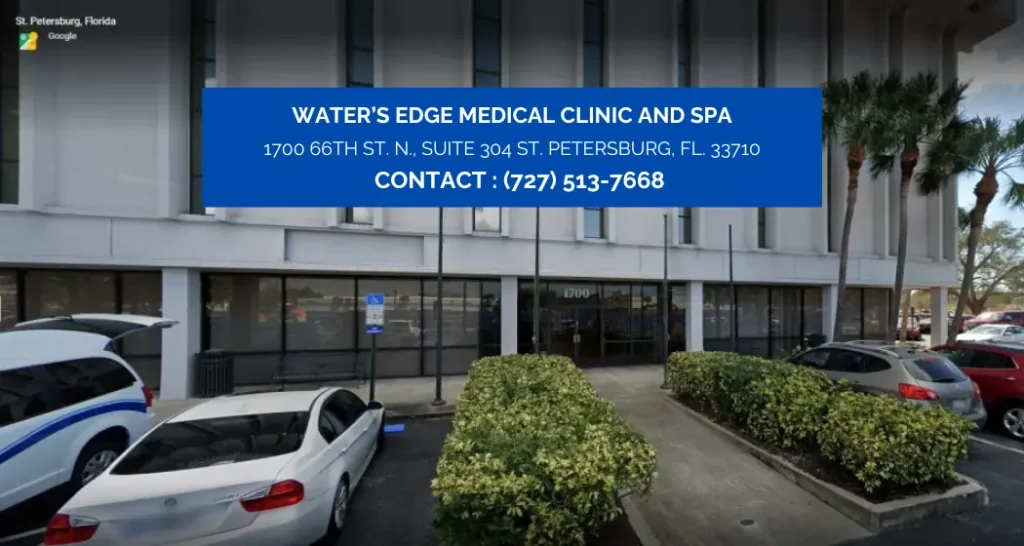Table of Contents
ToggleNeuropathy pain management is crucial for individuals experiencing discomfort due to nerve damage. Understanding neuropathy stages, including stage 4 neuropathy, is essential for effective treatment. Neuropathy progresses through various stages, with stage 4 representing severe nerve damage. Understanding the different stages of neuropathy helps neuropathy treatment center or doctors make personalized treatment plans to deal with specific symptoms and handle pain well.
Learning about the stages of neuropathy also helps individuals understand their condition better. Moreover, accessing appropriate medical care enables them to find relief from neuropathic pain and improve their quality of life

Neuropathic pain can profoundly affect one’s quality of life
It can cause pain, as well as other symptoms such as:
- Feeling sad a lot, which might make you feel really down
- Worrying a lot
- Having trouble sleeping
- Problems with thinking, like not remembering things well
- Feeling tired and not well overall
- Having other things bothering you
Experiencing neuropathic pain can significantly lower one’s quality of life, causing discomfort and making daily tasks more challenging. Understanding the stages of neuropathy is crucial for addressing it effectively. Also, this knowledge guides healthcare professionals in crafting effective neuropathy pain management plans.
By identifying the stage of neuropathy a patient is in, neuropathy treatment center can suggest the right treatments to help with symptoms and make life better. Whether through medications, physical therapies, or lifestyle adjustments, proactive management of neuropathic pain can help individuals regain control and find relief at every stage of their neuropathy journey.
Importance of Effective Neuropathy Pain Management
Good pain management can make patients feel better in their body and mind. It can also help patients start doing things again, feel happy, and get good sleep after surgery.
Effective pain management can include:
- Taking medicine correctly
- Doing exercises to help
- Using treatments to make pain less
- Getting good sleep
- Talking to people about how you feel
- Finding ways to feel less worried or sad
- Doing things you enjoy every day
- Asking for help when you need it
The best way to deal with neuropathy pain is to work closely with your doctor or visit a neuropathy treatment center near you to make a plan just for you. That is exactly what we do at Waters Edge Medical Clinic located in St. Petersburg, Florida. It is also important to listen to your doctor and tell them if you have any continued problems or symptoms. Try to move your body a little bit every day, like walking or doing easy exercises. It might take time to find what works best for you, so be patient and keep trying different things.
Understanding Neuropathic Pain
Neuropathy pain is when you feel pain for a long time because your nerves are damaged or not working right. It can happen anywhere in your nervous system, like your brain, spinal cord, or the nerves in your arms and legs. This pain can feel like tingling, burning, or shooting sensations. Sometimes, it’s caused by things like diabetes, injuries, or infections. It’s important to talk to your doctor or neuropathy treatment center near you if you have this kind of pain. They can help you find ways to feel better and manage it.
Neuropathy diagnosis and assessment
- Medical History: First, your doctor will talk to you and ask about how you’re feeling and your symptoms and medical history. Any underlying conditions that could contribute to neuropathy, such as diabetes or a history of chemotherapy.
- Physical Examination: A thorough physical examination may include tests to check how strong your muscles are, how quickly you react, how sensitive you are to being touched, temperature, and vibration. Your doctor may also examine your skin for signs of nerve damage.
- Neurological Tests: The doctor might do tests like nerve checks and electromyography (EMG) to see how well your nerves and muscles work. These tests can show where and how bad the nerve damage is.
- Blood Tests: The doctor may need to take a blood sample to check for other health problems like diabetes. Not having enough vitamins, or diseases where the body attacks itself. These issues could be causing your nerve damage.
- Imaging Studies: In some cases, imaging studies such as MRI or CT scans may be ordered to check. If something else is causing your symptoms, like when nerves get pressed or if there’s something strange in your body’s structure.
- Skin Biopsy: A skin biopsy might be done to check how many nerve fibers are in your skin, which can help diagnose certain types of neuropathy, such as small fiber neuropathy.
- Questionnaires and Patient Reporting: Your doctor may ask you to complete questionnaires or rate your symptoms to assess the impact of neuropathy on your daily life and overall well-being.
- Collaborative Approach: Diagnosing neuropathy often requires a collaborative approach involving various healthcare professionals, including neurologists, primary care physicians, and pain specialists. Talking openly with your healthcare team and taking part in finding out what’s wrong is really important. It helps make sure you get the right diagnosis and treatment plan.
Physical Therapy
Physical therapy, can be an important part of neuropathy pain management. It also can help with improving balance and coordination which often times is affected with progressive neuropathy. It can make your symptoms, especially weakness and balance issues better. Doing exercises that gently move your nerves can help ease your symptoms and help your nerves get better.
A full physical activity plan has four different types of activities:
- Aerobic Exercise: This exercise elevates your heart rate and accelerates your breathing. It includes activities like walking, jogging, swimming, or biking.
- Strength Training: Strength training helps make your muscles stronger by lifting weights or using resistance bands. It can involve exercises like squats, lunges, or push-ups.
- Flexibility Exercises: Flexibility exercises help you move better and keep your muscles and joints flexible. Examples include stretching exercises or yoga poses.
- Balance Exercises: Balance exercises help improve your stability and reduce the risk of falls.
This might mean standing on one leg, walking heel-to-toe, or using balance boards or stability balls.
Doing all four kinds of activities in your regular routine can make you fitter overall, lower your chances of getting hurt, and make your life better.
Lifestyle Strategies for Managing Neuropathic Pain
In Neuropathy Pain Management, understanding the neuropathy stages is essential for tailoring effective treatment plans to address specific symptoms and manage pain effectively. Adopting lifestyle strategies plays a crucial role in improving overall well-being and reducing discomfort. This means eating lots of healthy foods and less sugary and processed stuff to help your nerves stay healthy and reduce swelling, especially if you have diabetes.
Regular exercise not only enhances physical function but also releases natural pain-relieving chemicals. Providing relief from neuropathic pain and boosting mood. Ways to handle stress like taking deep breaths and meditating can help calm down your nerves, easing tension and making you less sensitive to pain.
Additionally, seeking support from a neuropathy treatment center like Waters Edge Medical clinic and exploring mind-body therapies like acupuncture and massage can further enhance pain management efforts. Creating a solid support system and connecting with others who share similar challenges. It can offer priceless emotional support. Helpful resources for dealing with the complexities of living with neuropathic pain and leading to a better quality of life in the end.
Accessing Healthcare and Specialist Services
Access to healthcare means being able to use doctors and other health services to stay as healthy as possible. This includes things like getting checked for problems and getting treatment if you’re sick. Additionally, learning how to manage any health issues you have. Moreover, it’s important for staying well and getting help when you need it.
Empowering Individuals to Take Control of Their Neuropathy Pain Management
Empowering individuals to take control of their neuropathy pain management involves providing them the information, tools, and support necessary for them to be actively involved in their treatment journey. This includes educating them about their condition and available treatment options. Encouraging self-care practices such as healthy lifestyle choices and stress management techniques, and encouraging patients and healthcare providers to communicate openly with each other.
Additionally, by empowering individuals to play an active role in their neuropathy pain management, we can help people feel more independent, stick to their treatment better, and ultimately make their overall quality of life better.
Final Thoughts for Neuropathy Pain Management
In conclusion, managing neuropathic pain requires a comprehensive approach that encompasses various strategies tailored to individual needs. It’s really important for healthcare providers to know the different stages of neuropathy so they can make treatment plans that work well, helping to ease symptoms and make life better.
Lifestyle strategies such as maintaining a healthy diet, engaging in regular exercise, practicing stress management techniques, and seeking support from a neuropathy treatment center can significantly enhance neuropathy pain management efforts.
It’s important to remember that managing neuropathy is a journey, and with patience, persistence, and support, individuals can find relief and live fulfilling lives despite the challenges posed by neuropathic pain.
Seek help and support for Neuropathy Pain Management

Encouraging individuals to seek help and support for neuropathic pain, regardless of the neuropathy stages they may be experiencing, is crucial for effective neuropathy pain management and overall well-being. By reaching out to a neuropathy treatment center, individuals can access comprehensive care tailored to their specific needs and stage of neuropathy.
These neuropathy treatment centers provide various services like diagnosis, treatment, and support, giving people the tools and know-how to handle their neuropathic pain effectively.
Additionally, connecting with support groups and counseling services can offer invaluable emotional support and practical guidance, assisting individuals in dealing with the difficulties of living with neuropathy and building a community where there is mutual understanding and support. Encouraging individuals to seek help and support empowers them to take control of their pain management journey and improve their quality of life.
Feeling numbness, tingling, sharp, shooting, radiating or burning pain into the hands or feet? No need to panic and dash to the ER! Just schedule a checkup with us instead. Our team at Waters Edge Medical Clinic and Spa located in St. Petersburg, Florida, have top notch Pain Physicians to handle your neuropathy. Save yourself the hassle and snag relief by booking online or ringing us up at 727-550-0855.
We are Giving Away 50 Vouchers for a $49 Neuropathy Pain Relief Treatment Session. Ready To Take Control And Alleviate Pain?
- Including a Complete Nerve Scan
- Consultation
- Neurologic Evaluation to learn more about what you are experiencing and how we can help you get out of pain in the fastest time possible!
- (Normally a $350 Total Value)
Sign Up And Claim A Voucher Now! See you soon.


